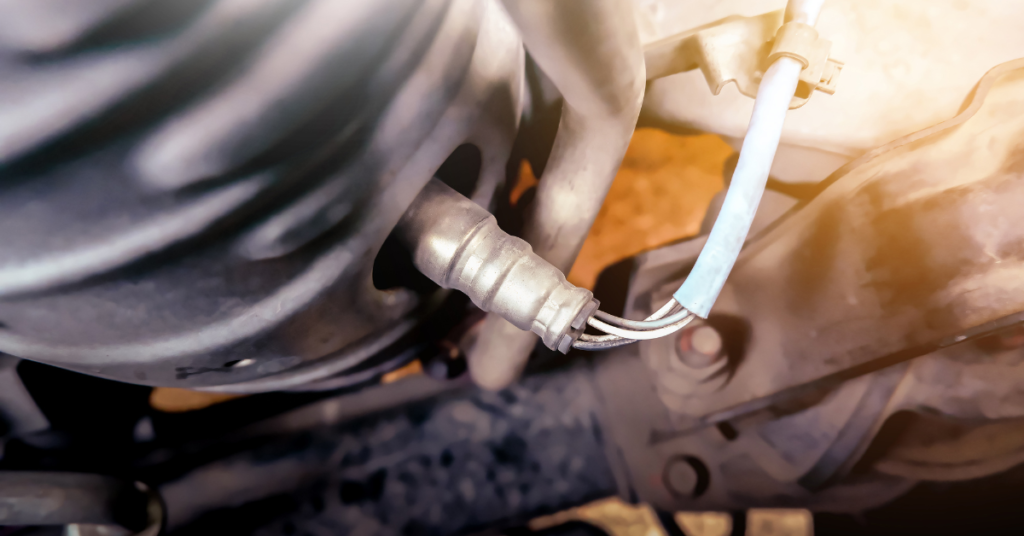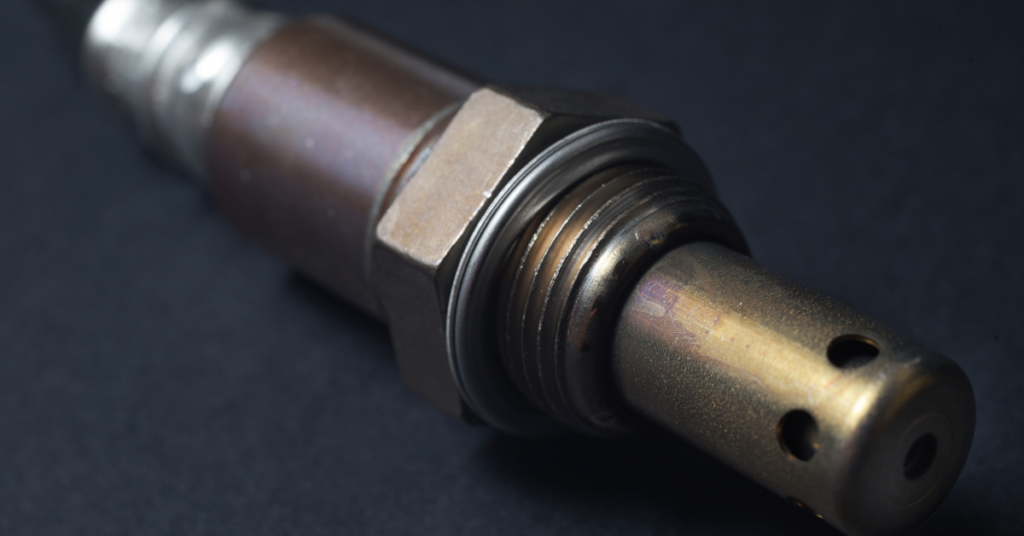
The P0420 Mercedes code is a common error code that can occur in Mercedes vehicles. It is related to the catalytic converter and indicates a potential issue with its efficiency.
In this article, we will explore the P0420 error code in Mercedes vehicles, its possible causes, symptoms, and the steps to diagnose and fix the problem.
Contents
Understanding the P0420 Mercedes Error Code
The P0420 error code signifies a problem with the catalytic converter’s efficiency in the exhaust system. In Mercedes vehicles, the catalytic converter plays a crucial role in reducing harmful emissions and converting harmful gases into less harmful substances.
It acts as a filter that helps to clean the exhaust gases before they are released into the environment. If the efficiency of the catalytic converter drops below a certain threshold, the P0420 error code is triggered.
The catalytic converter consists of two main components: the catalyst and the oxygen sensors.
The catalyst is made up of precious metals such as platinum, palladium, and rhodium, which facilitate the chemical reactions that convert harmful gases into less harmful substances.
The oxygen sensors, on the other hand, monitor the oxygen levels in the exhaust gases and provide feedback to the engine control module (ECM).
This information helps the ECM adjust the air-fuel mixture to ensure optimal combustion and efficient operation of the catalytic converter.
Possible Causes of P0420 Error
Several factors can contribute to the occurrence of the P0420 error code in Mercedes vehicles. Understanding these causes can help in diagnosing and fixing the problem effectively. Some of the common causes include:
Faulty Catalytic Converter
A damaged or worn-out catalytic converter can lead to reduced efficiency and trigger the P0420 error code. Over time, the catalyst in the converter can deteriorate, become contaminated, or develop cracks or holes, affecting its ability to perform its function effectively.
Oxygen Sensor Issues

Faulty oxygen sensors can provide inaccurate readings to the engine control module (ECM), leading to the triggering of the P0420 error code.
If the sensors are not functioning properly, they may fail to detect the correct oxygen levels in the exhaust gases, causing the ECM to receive incorrect data and potentially triggering the error code.
Exhaust Leaks
Leaks in the exhaust system, such as cracked or damaged pipes, can cause false readings and trigger the P0420 error code.
These leaks can introduce additional oxygen into the exhaust stream, leading to inaccurate readings by the oxygen sensors and resulting in the triggering of the error code.
Fuel System Problems
Issues with the fuel injectors, fuel pressure regulator, or fuel delivery system can affect the air-fuel mixture, resulting in a drop in catalytic converter efficiency.
If the fuel system is not functioning properly, it may lead to an imbalance in the air-fuel ratio, causing the catalytic converter to work harder and potentially triggering the P0420 error code.
To accurately diagnose the root cause of the P0420 error code, it is essential to conduct a thorough inspection and perform various tests.
Symptoms of P0420 Error Code
The P0420 code is just a random occurrence; it might be a gateway to comprehending the intricacies of the P0430 code in Mercedes. When the P0420 error code is triggered in a Mercedes vehicle, you may experience one or more of the following symptoms:
Check Engine Light
The most obvious indicator of the P0420 error code is the illumination of the check engine light on the vehicle’s dashboard. This is the primary way the vehicle’s onboard diagnostic system alerts the driver to potential issues.
Reduced Engine Performance
In some cases, you may notice a decrease in engine power or performance. The catalytic converter plays a crucial role in optimizing the engine’s performance, and if it is not functioning efficiently, it can lead to a noticeable reduction in power and overall performance.
Increased Fuel Consumption
A faulty catalytic converter can lead to an increase in fuel consumption, which can be noticeable over time. This is because a less efficient catalytic converter may not effectively convert the harmful gases, resulting in wasted fuel.
Rough Idling or Stalling
In severe cases, the engine may idle roughly or even stall due to the issue with the catalytic converter. This happens when the engine’s air-fuel mixture is not properly regulated, leading to unstable engine operation.
Diagnosing the P0420 Error Code
Diagnosing the root cause of the P0420 error code requires a systematic approach. Here are the steps you can follow:
Scan the Vehicle
Use an OBD-II scanner to retrieve the specific error code and further identify the underlying cause of the issue. The OBD-II scanner connects to the vehicle’s onboard diagnostic system and provides valuable information about the error code and other relevant data.
Inspect the Catalytic Converter
Visually inspect the catalytic converter for any signs of damage, such as cracks, holes, or internal blockages. Look for physical damage that may be affecting its efficiency.
Check Oxygen Sensor Readings
Test the oxygen sensors using a multimeter to ensure they are functioning correctly and providing accurate readings. This involves measuring the voltage output of the oxygen sensors to determine if they are within the expected range.
Inspect for Exhaust Leaks

Examine the exhaust system for leaks, paying close attention to the exhaust manifold, pipes, and joints. Look for any signs of damage or gaps that may be causing air leaks.
Examine the Fuel System
Inspect the fuel injectors, fuel pressure regulator, and other components of the fuel system for any potential issues or malfunctions. Check for clogged injectors, irregular fuel pressure, or any other problems that may affect the air-fuel mixture.
By following these diagnostic steps, you can pinpoint the specific cause of the P0420 error code in your Mercedes.
Solving the P0420 Error Code
Deciphering the P0430 code in your Mercedes offers insights into a collective issue faced by car brands everywhere—a challenge involving the efficiency of the catalytic converter.
Once you have identified the underlying cause of the P0420 error code in your Mercedes, you can take the appropriate steps to fix the problem. Here are some potential solutions:
Replace the Catalytic Converter
If the catalytic converter is damaged or worn out, it may need to be replaced. Consult a professional mechanic for proper diagnosis and replacement. It is essential to use a high-quality catalytic converter that meets the specifications of your Mercedes model.
Repair Exhaust Leaks
If leaks are detected in the exhaust system, they should be repaired promptly to ensure accurate readings and proper functioning of the catalytic converter.
This may involve replacing damaged pipes, repairing joints, or addressing any other issues contributing to the leaks.
Replace Oxygen Sensors

Faulty oxygen sensors should be replaced with high-quality, OEM (Original Equipment Manufacturer) sensors for optimal performance. Ensure that the new sensors are compatible with your Mercedes model and meet the required specifications.
Address Fuel System Issues
If the fuel system is causing the P0420 error code, ensure that any faulty components are repaired or replaced as necessary.
This may involve cleaning or replacing clogged injectors, addressing fuel pressure irregularities, or fixing any other fuel system problems.
It is important to note that fixing the P0420 error code may require advanced technical skills and specialized tools.
Therefore, it is recommended to consult a certified technician or mechanic for a thorough diagnosis and appropriate solutions for your specific Mercedes model.
Conclusion
The P0420 error code in Mercedes vehicles is an important indicator of potential issues with the catalytic converter’s efficiency. It is crucial to address this issue promptly to prevent further damage and ensure optimal vehicle performance.
By understanding the causes, symptoms, and diagnostic steps outlined in this article, you can effectively resolve the P0420 error code and restore your Mercedes to its full potential.
FAQ
1. What is the P0420 error code in Mercedes?
The P0420 error code signifies a problem with the catalytic converter’s efficiency in the exhaust system of Mercedes vehicles. It indicates that the catalytic converter is not functioning optimally, potentially leading to increased emissions.
2. What are the possible causes of the P0420 error code in Mercedes?
Some common causes of the P0420 error code in Mercedes include a faulty catalytic converter, oxygen sensor issues, exhaust leaks, and fuel system problems. These factors can affect the efficiency of the catalytic converter and trigger the error code.
3. What are the symptoms of the P0420 error code in Mercedes?
When the P0420 error code is triggered in a Mercedes vehicle, you may experience symptoms such as the illumination of the check engine light, reduced engine performance, increased fuel consumption, and rough idling or stalling.
4. How can I diagnose and fix the P0420 error code in my Mercedes?
To diagnose the root cause of the P0420 error code, you can scan the vehicle using an OBD-II scanner, visually inspect the catalytic converter for damage, check the oxygen sensor readings, inspect for exhaust leaks, and examine the fuel system.
Once the cause is identified, you can take appropriate steps such as replacing the catalytic converter, repairing exhaust leaks, replacing oxygen sensors, or addressing fuel system issues to fix the problem.
It is recommended to consult a certified technician for a thorough diagnosis and appropriate solutions.



